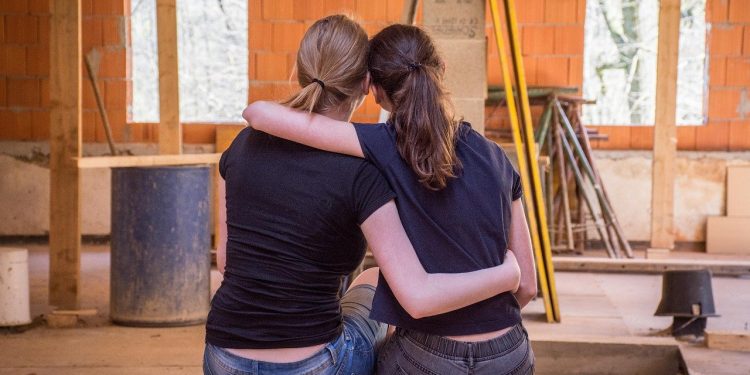“It is no longer an outbreak which is an Asian or a Chinese problem, we now have a new epicentre and it is called Europe.”

Citizens in Denmark need to prepare to limit their social contacts, to keep a distance of one meter to people they meet or spend time with, not to shake hands, kiss or hug, and avoid being together with many people at the same time.
The article continues below.
By Bente D. Knudsen
These were the words of a very serious Søren Brostrøm, the CEO of the Danish Health Board, responsible for getting the Danish health system prepared for the epidemic at this morning’s press meeting.
They have been saying it all week and now they are repeating it again.
Citizens in Denmark need to prepare to limit their social contacts, to keep a distance of one meter to people they meet or spend time with, not to shake hands, kiss or hug, and avoid being together with many people at the same time.
Søren Brostrøm stressed that this does not mean we cannot meet up with a couple of friends or family members, but that we should respect all these measures also when we are just meeting with a few people.
Hand hygiene is extremely important, wash hands frequently or use a disinfectant.
He also said to go outside, go for walks and stay active, outdoors is much better than indoors and restricting social contact is not the same as not seeing your family.
The article continues below.
People also need to be more aware of their general state of health.
As the coronavirus is spread in the society, every symptom of a flu, such as a fever, sore throat or coughing or problems breathing could be the coronavirus just as it could a regular flu.
As soon as you feel the slightest symptom stay at home and avoid close contact.
Do not go to your GP’s waiting room or any other medical facility.
Due to the change in strategy of the Danish health system, you will not necessarily be tested for coronavirus.
The health system in Denmark has so far had a strategy of containment and of finding all people with the coronavirus and their contacts and these people have all been tested.
This is no longer a relevant strategy when the virus is more widespread in the population.
The new strategy is explained below.
Instead now the strategy is to protect and identify those at risk of serious illness; this means the elderly and those with a chronic disease or other immune deficiency, which makes them much more at risk of being taken seriously ill and needing hospital care.
These people will be tested in order to ascertain if they have the COVID-19 virus so the GP and medical system can take the appropriate measures.
If you are taken ill, and in general are feeling Ok despite a fever and cough or other symptoms, it is not necessary to call your GP if you are NOT in a risk group.
The illness will pass, and you need to stay at home until you are well again.
If, however, you are a person in the risk group, then you need to notify your GP who will be able to take the necessary measures.
If you are not in the risk group and the symptoms get worse and you are feeling extremely poorly then you need to call your GP who will evaluate your risk, and yes you might be told to stay at home and take a Panodil !
The article continues below.

